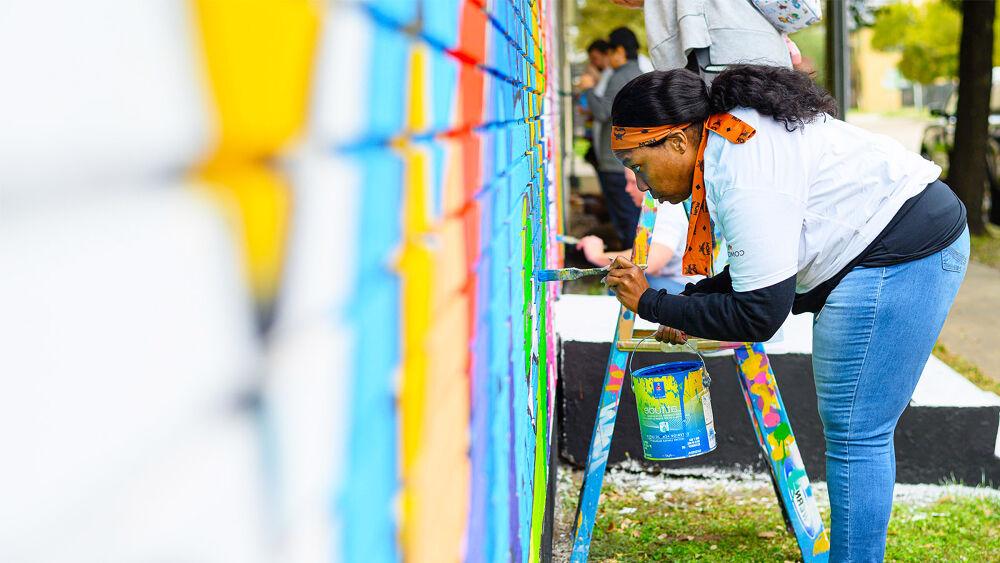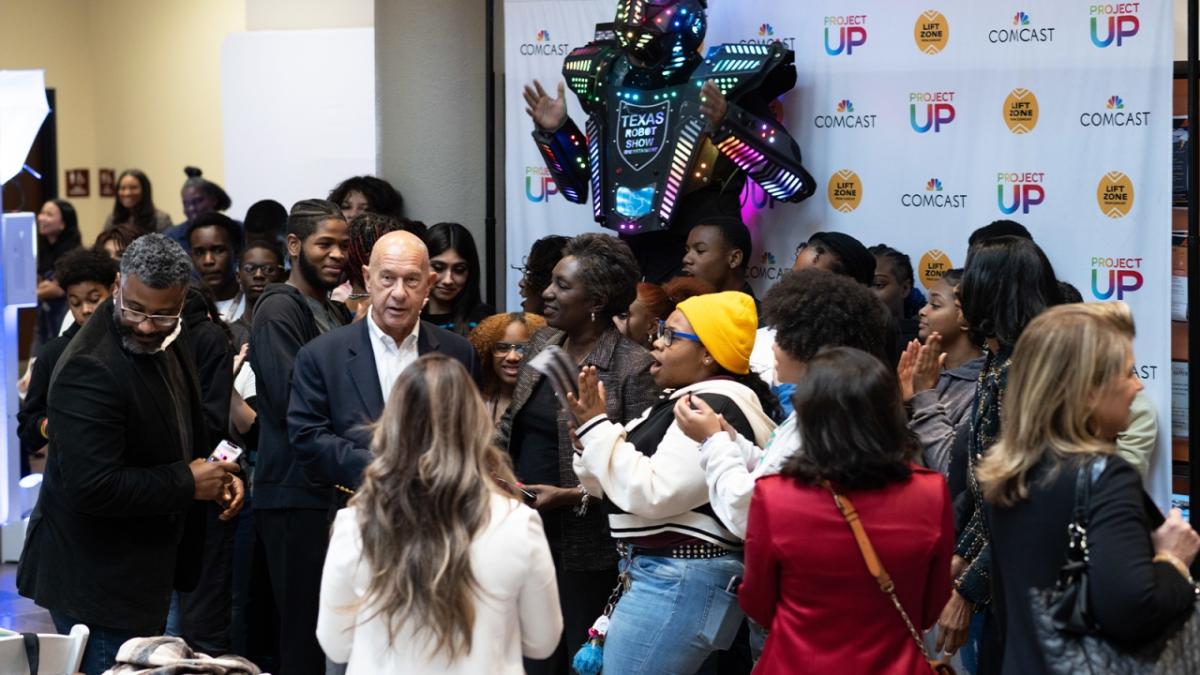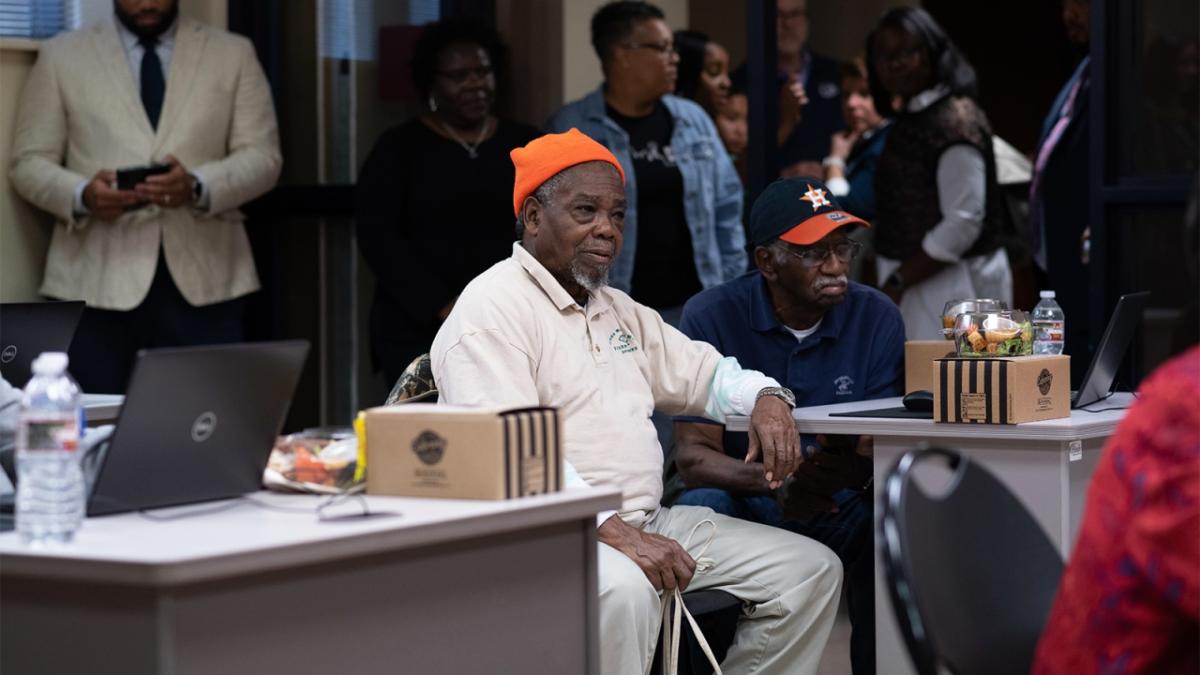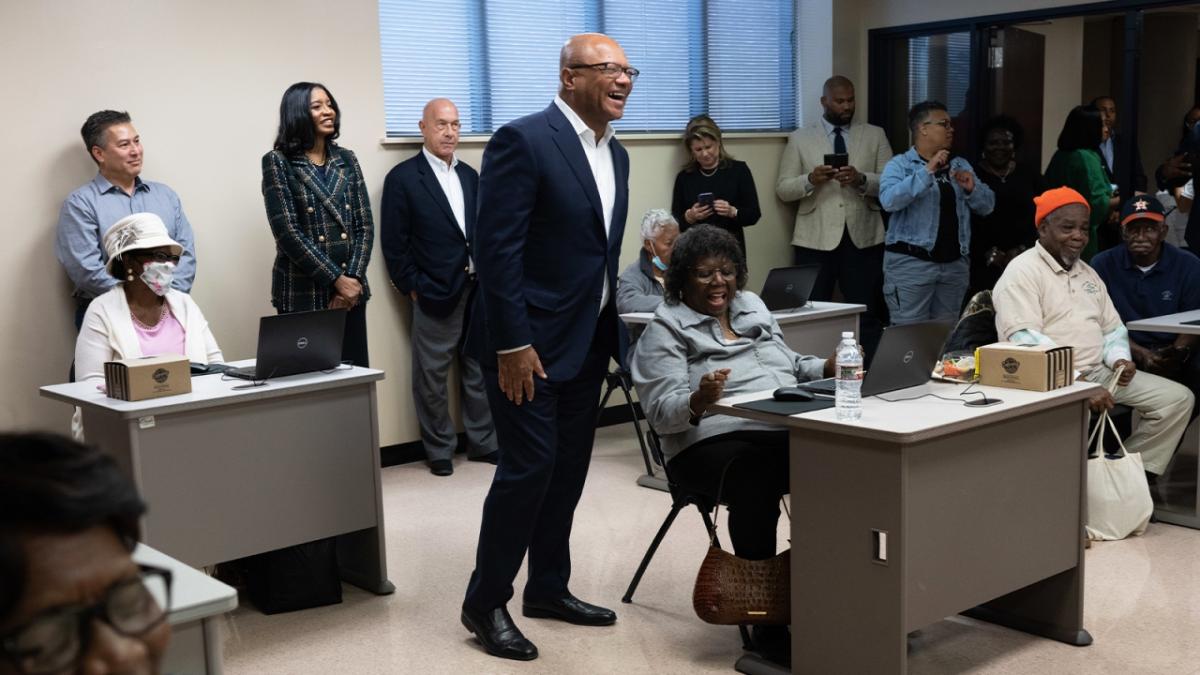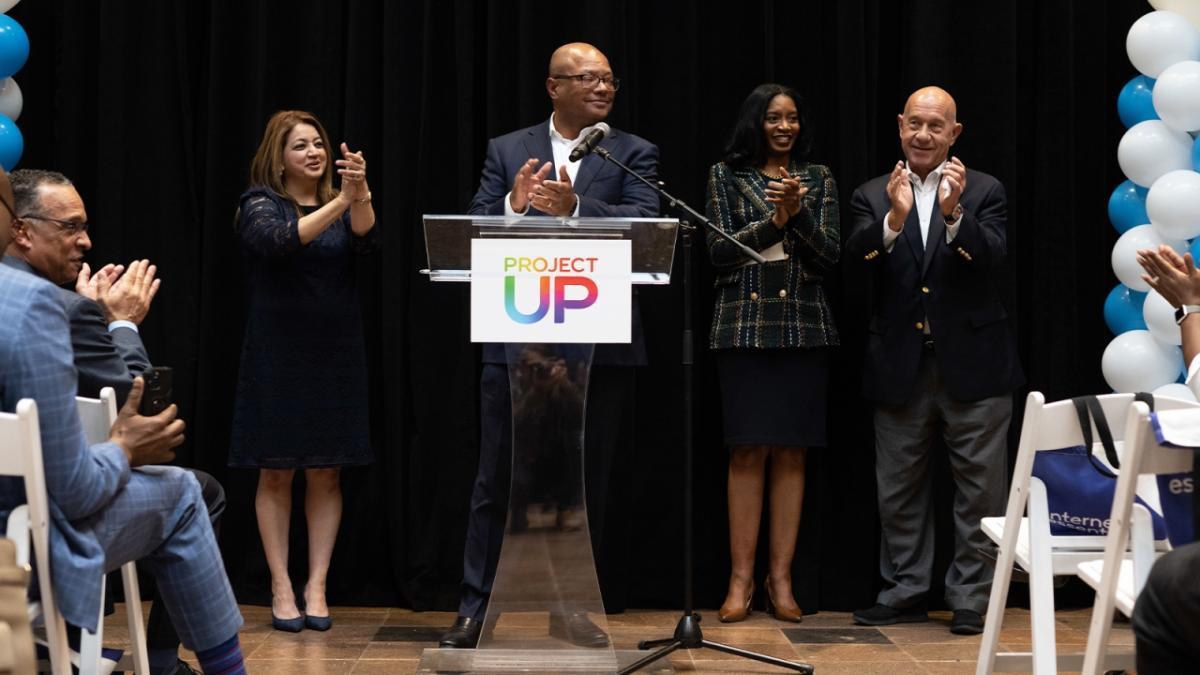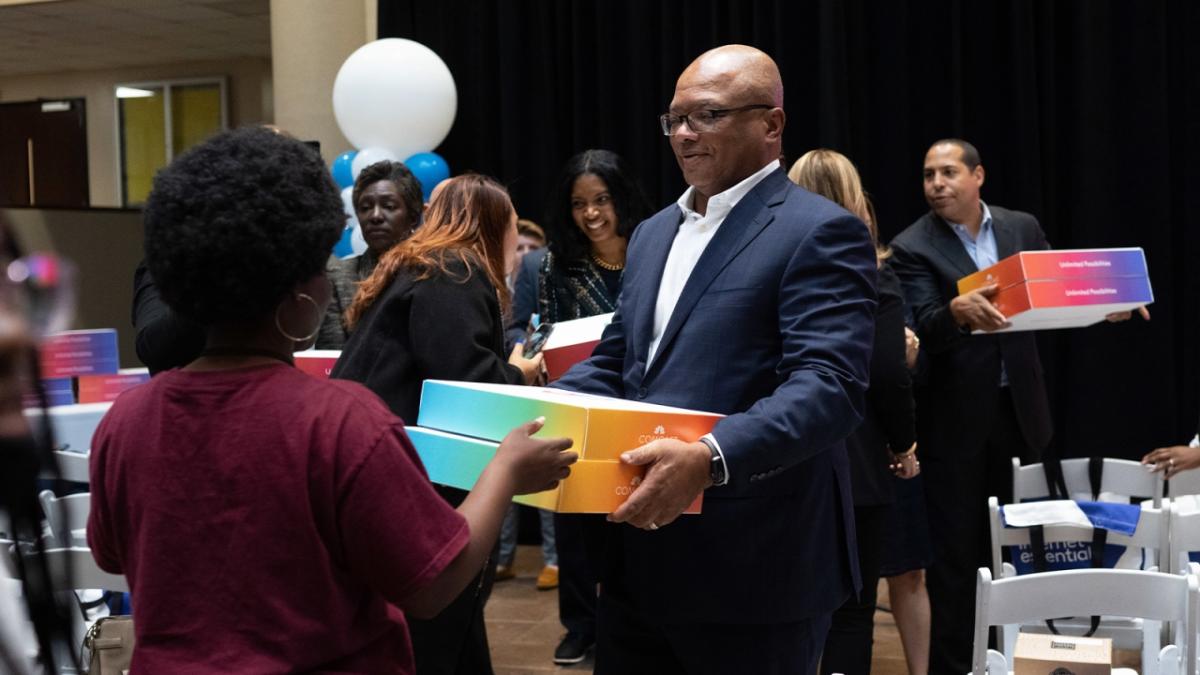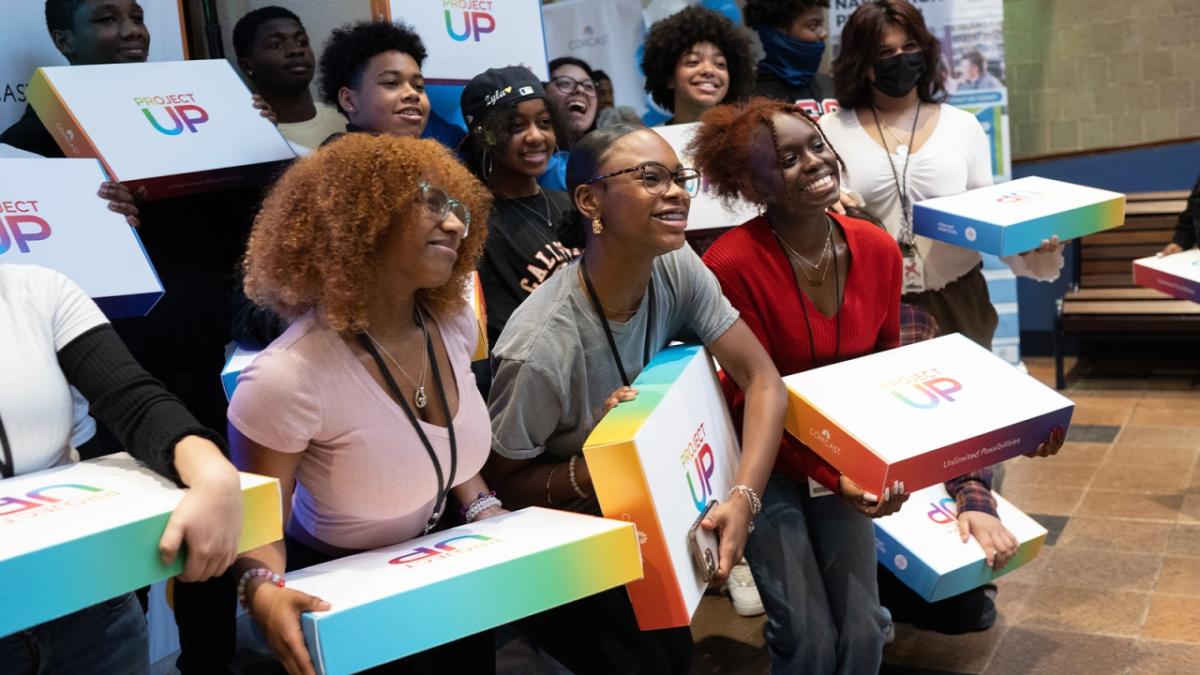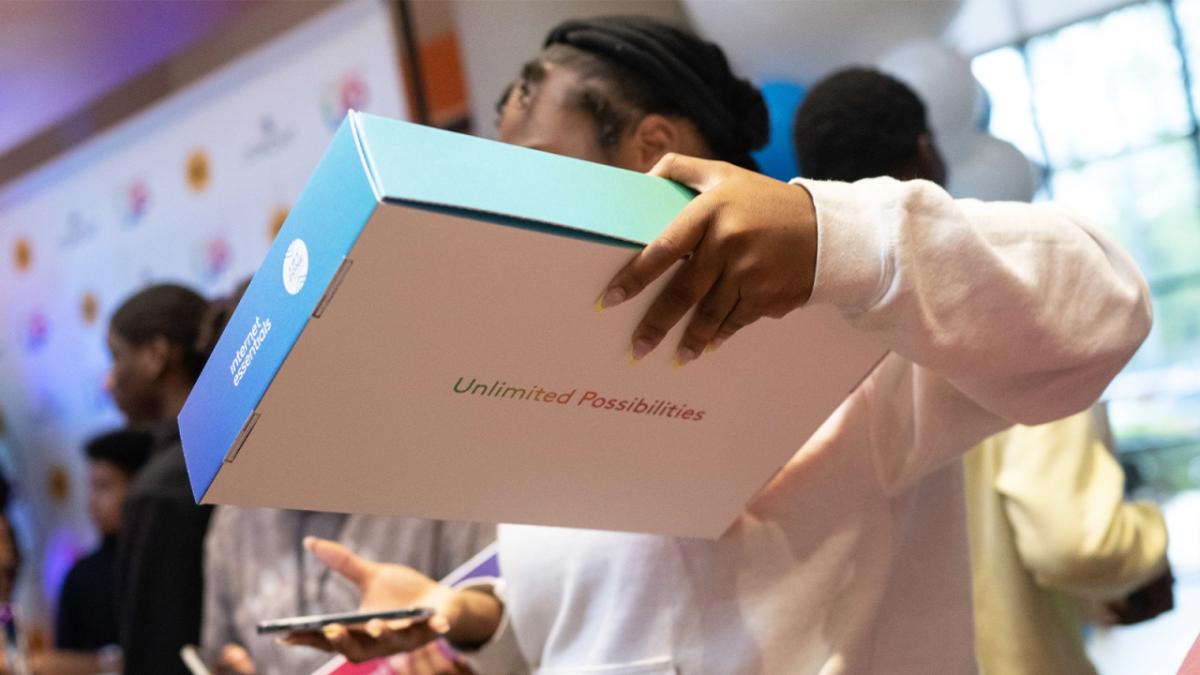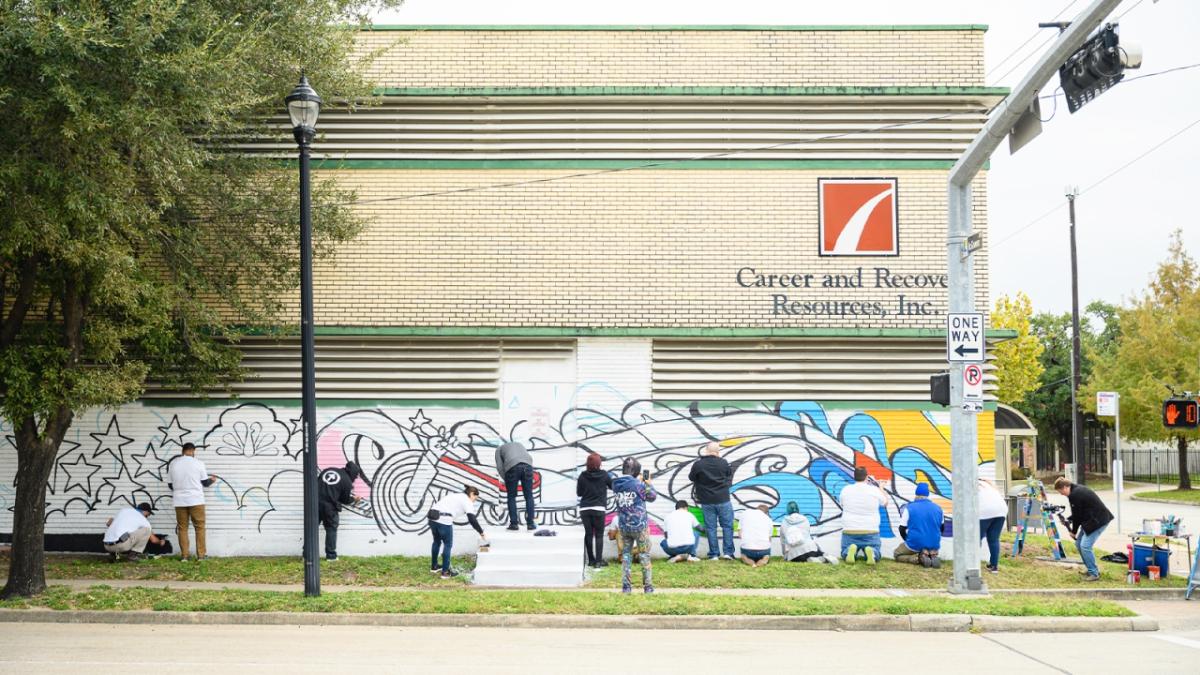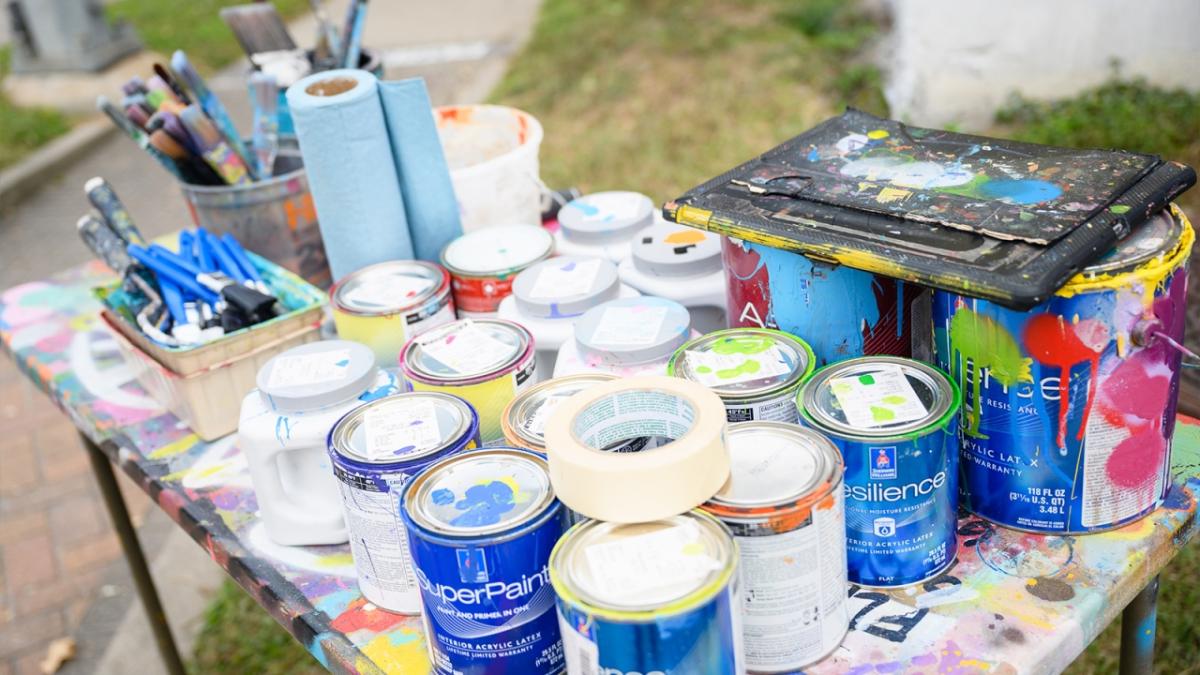Houston: A City With a 'Big Heart' and a Bigger Lesson
By Broderick Johnson
The city of Houston is sometimes known as The Big Heart. And just days before Thanksgiving, I met Gayla Hall and found out why that is.
Gayla, like so many in the city, came downtown to St. John’s Bread of Life to ensure her family had enough food on the table to celebrate the holiday—and household supplies and pantry staples to sustain them long after. As Comcast volunteers carefully and caringly placed these essentials in the trunks of cars, I met with Gayla and a few others to surprise them with perhaps one of the ultimate essentials of these times: a brand-new laptop.
Surely, Gayla could have used the device herself. Still, she told me she wasn’t keeping it. Instead, she was going to give it to her 87-year-old mother. Throughout the pandemic, Gayla’s mother has been communicating with her doctors over the phone. Now, with her new laptop, she can meet with them “face-to-face,” ensuring she gets better treatment, faster.
That day in Houston, I was reminded once again of the power of a home-based high-speed Internet connection as well as a high-quality device to get online. But Gayla reminded me of something else, too, that being our own capacity to help empower others to change their own lives for the better.
The Power of Digital Navigators
I’ve been speaking a lot lately about the impact of Digital Navigators — and during my visit to Houston I witnessed that power first-hand. Digital navigators are people — volunteers and paid staff — who help other people get online, get them signed up for the Affordable Connectivity Program (ACP), assist them in setting up new devices, and teach them how to navigate the Internet. Simply put, digital navigators remove critical barriers to Internet adoption — and in doing so, are a uniquely human solution to help close the digital divide.
At Comcast, we are investing in digital navigators through Project UP, our 10-year, $1 billion commitment to advance digital equity. And in Houston, I got to announce a $150,000 grant to support a new digital navigator pilot program with the City of Houston Mayor’s Office of Complete Communities and SERJobs. This program will bring trusted tech experts to four of Houston’s historically under-resourced neighborhoods — Acres Homes, Kashmere Gardens, Magnolia Park-Manchester, and Sunnyside. These experts will provide one-on-one support to hundreds of Houstonians whose lives will change as they are able to take advantage of all the Internet has to offer.
One of the most inspiring events during the trip to Houston took place at Acres Homes Multi-Service Center. There, we surprised high school students and senior citizens with 100 free laptops. The high school students shared stories about the value that Internet access and devices bring to their own education; they also shared wonderful stories about how their own parents, grandparents, and neighbors get online. In their own ways, they serve as digital navigators.
And the senior citizens, who were participating in an interactive digital navigator training, told me why the workshop was so uniquely valuable to them. Jana, for instance, is a retired music teacher. She promised her mother that she would share her music lessons with the world, and she is determined to learn how to get those lessons online. Jana is another example of the power of digital navigators.
The Power of Community Partners
I was born and raised in Baltimore, Maryland. And although my hometown is 1,440 miles away from Houston, the two cities share legacies of racial segregation and sweeping disparities in opportunity and resources. During my keynote speech at the 100 Black Men of Houston Education Summit, I shared the story of how my parents were determined to do all they could to give me the tools essential to defy expectations. For the most part that meant encyclopedias and trips to museums and libraries.
The truth is, to succeed today, a high-speed Internet connection at home is essential. So, I asked the educators gathered to spread the word about our Internet Essentials program. Since 2011, Comcast has connected more than 10 million Americans to the Internet at home, many for the first time. That’s more than 10 million lives changed forever.
As I said at the Summit, the Internet is power. It is the power to seek opportunity and knowledge, to learn new skills and find community, to stay informed, to organize — to limit the time you spend on chores and errands to spend more time with the people you love. A high-speed Internet connection is not a perk or a privilege. It’s a precondition for full participation in society as a whole. It’s how you succeed. It’s how you excel. It’s how you become exceptional.
The Power of Comcast Volunteers
My trip to the Big Heart had one final takeaway: our power to change lives is greater when we work together. Through Team UP, Comcast’s volunteer program, we bring local employees together with local non-profit organizations to support those in need within our own communities — and last month in Houston, that’s exactly what we did.
At St. John’s Bread of Life, where I met Gayla, Comcast volunteers helped pass out Thanksgiving meals to needy families, and we gave away 100 laptops to families there as well. And at the Career and Recovery Resources Center in downtown Houston, a team of Comcast employees and volunteers gathered to paint an inspiring mural on the side of the building, alongside local artist Gonzo247. The “Make Your Wake” mural he designed represents the idea of riding out whatever challenges life brings our way and emerging safely through the storms.
Wherever I travel — to Houston and Detroit, to San Francisco and Fresno — I am in awe of the grit and the generosity of our employees and our partners. It is clear that in the 21st century, opportunity awaits everyone online. Working together, I believe we have the once-in-a-generation chance to empower everyone to seize it.

